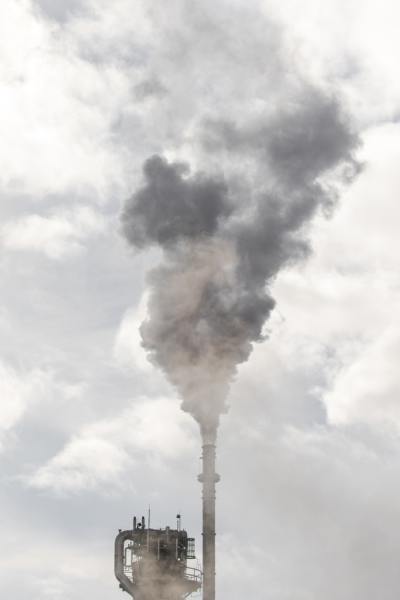Limiting pollution is an evangelical value

Evangelicals are famous (perhaps even infamous) for our passionate convictions. Our commitment to the authority of scripture, our defense of the sanctity of life, and our eagerness to share the good news of the gospel are all well-known.
Perhaps less well-known, though, is our commitment to a healthy environment.
Don’t believe us? Consider only the most recent example: more than 67,000 pro-life Christians have submitted comments to the Environmental Protection Agency (EPA) urging them to preserve New Source Performance Standards (NSPS) methane pollution rules. That’s more comments than any other group.
These numbers are no anomaly, either. When the rule was first issued for comment in 2015, almost 92,000 of us sent comments of support—again, more than any other interested party. When the Bureau of Land Management’s (BLM) methane leaking and flaring rule was challenged in 2017, the late John McCain was asked to protect it by almost 8,000 pro-life Arizonans (and he did), and by over 87,000 others across the country. Earlier this year, another 44,000-plus pro-life evangelicals asked the Department of Interior to keep the BLM methane standard in place (they didn’t).
If all this seems strange, we assure you it is not. For years, pro-life Christians have been opposing harmful pollution from fossil fuel infrastructure, be it mercury, smog, or methane. The reason for this is simple: this pollution threatens human health, especially the health of vulnerable populations (children, the elderly, those with chronic illness) and the unborn.[i]
Take methane. The process of extracting methane (natural gas) includes significant leaking, venting, and flaring of excess gas. This in turn leads to harmful pollutants like benzene and smog precursors being released into our communities. Medical studies have shown that these pollutants have a disproportionate impact on life in the womb.[ii] [iii] For pregnant women living near natural gas production sites, these emissions have been linked to birth defects, pre-term births, and low-birth-weight babies. In turn, these babies are at an increased risk of infant mortality, ADHD, asthma, and other adverse health outcomes.[iv] [v]
What’s more, methane is a highly potent greenhouse gas. It is 86 times more powerful than carbon dioxide at trapping heat in the atmosphere over a 20-year timeframe. With climate impacts already being visited upon our neighbors from Paradise to Houston, evangelicals are recognizing more and more that we cannot be faithful to Christ’s command to love our neighbor if we do nothing about greenhouse gas pollution.
That’s why tens of thousands of evangelicals pushed to get the NSPS Methane rule across the finish line in 2016. Yet this is precisely the rule that current EPA Acting Administrator Andrew Wheeler is proposing to now rollback. By his agency’s own admission, this will result in 890,000 tons of additional methane in the atmosphere and 7,700 more tons of hazardous air pollutants by 2025.
It is precisely our evangelical commitments that call us to resist this kind of dangerous reversal. The Scriptures that we love are clear about God’s call to us to protect the world that he loves and to show our neighbors the same care and concern we show for ourselves. The gift of life that we revere is directly threatened by the prospect of more pollution in our air and in the bodies and brains of our kids. The gospel’s shout of good news for all creation is stifled by actions whose results are anything but good for mothers, the poor, and the unborn.
Overwhelming evangelical support for strong pollution standards may be surprising to some, but it isn’t to us. It is a natural extension of the values we hold most dear.
[i] Air Pollution and Children’s Health, Joel Schwartz, PEDIATRICS Vol. 113 No. 4 April 2004
[ii] Hydraulic fracturing and infant health: New evidence from Pennsylvania by Janet Currie, Michael Greenstone, Katherine Meckel; Science Advances 13 DEC 2017: E1603021
[iii] Assessing Human Health PM2.5 and Ozone Impacts from U.S. Oil and Natural Gas Sector Emissions in 2025; Neal Fann, Kirk R. Baker, Elizabeth A. W. Chan, Alison Eyth, Alexander Macpherson, Elizabeth Miller, and Jennifer Snyder; Environmental Science & Technology 2018 52 (15), 8095-8103 DOI: 10.1021/acs.est.8b02050
[iv] Walker Whitworth K, Kaye Marshall A, Symanski E. Drilling and Production Activity Related to Unconventional Gas Development and Severity of Preterm Birth. Environ Health Perspect. 2018;126(3):037006. Published 2018 Mar 20. doi:10.1289/EHP2622
[v] Stacy SL, Brink LL, Larkin JC, Sadovsky Y, Goldstein BD, Pitt BR, et al. (2015) Perinatal Outcomes and Unconventional Natural Gas Operations in Southwest Pennsylvania. PLoS ONE 10(6): e0126425. doi:10.1371/journal.pone.0126425





















